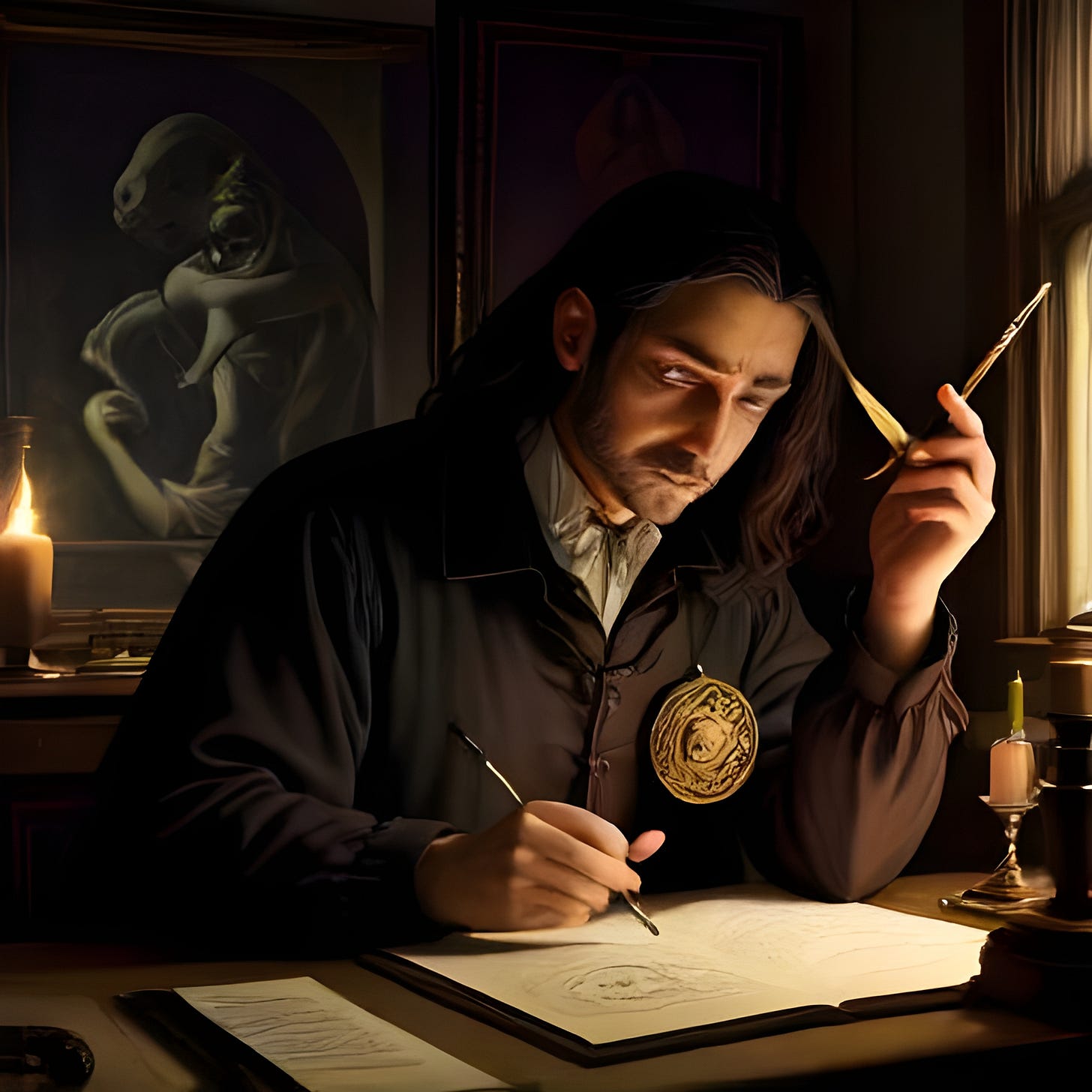A Scholar Unbound: Dr. John White's Journey Through Reason, Mysticism, and the Esoteric
The concept of the "Magnetic Center" and the Laws of Attraction
I did an in-depth paper for him once and decided to share my insights to you guys. I have over 30 subscribers now and although I make my subscription free it is still very nice that I have a small community to share my ideas and findings. Please feel free to comment to share your ideas as well! Link of his recent interview below.
Dr. John White is a philosopher, counselor, Jungian psychoanalyst, and author who publishes and presents on esoteric concepts.
Dr. John White defies easy categorization. Philosopher, counselor, Jungian psychoanalyst – these titles merely hint at the breadth and depth of his intellectual odyssey. Recently, I had the captivating opportunity to delve into his world, a conversation that unfolded like a spellbinding adventure through the landscapes of reason, mysticism, and the esoteric.
Our journey began in the seemingly staid halls of academia, where Dr. White flourished as a philosophy professor. Yet, beneath the surface of scholarly pursuits simmered a deep curiosity about the mystical aspects of Catholicism. This wasn't mere intellectual fascination; it was a vital thread woven into the fabric of his being, even influencing his decision to pursue philosophy in the first place.
Intrigued by this unique blend of faith and reason, I learned about Dr. White's foray into phenomenology, a philosophical tradition that emphasizes the primacy of experience. It resonated with him because it challenged established principles, prioritizing the exploration of reality through personal encounters with the world. This resonated deeply with his mystical leanings, offering a framework to understand reality not through pre-conceived notions, but through the subjective lens of lived experience.
However, academia's rigid confines eventually felt suffocating. Dr. White craved a space to delve into the uncharted territories of the human psyche. This yearning led him to the transformative world of Jungian psychoanalysis. It wasn't a sudden pivot, but rather a natural progression. A midlife crisis, a common thread in many a fascinating life story, played a role here. It led him to explore the works of Carl Jung, and soon enough, Dr. White found himself drawn into the intricate world of Jungian analysis. Leaving academia wasn't a sacrifice, but a liberation. Free from its constraints, he could finally embrace the esoteric traditions – the ancient wisdom systems like Hermeticism and Kabbalah that had long beckoned him.
One particularly captivating story Dr. White shared was his experience teaching Renaissance philosophy at a Catholic university. His colleagues, it seemed, weren't particularly fond of this specific area. However, Dr. White recognized its profound significance. Understanding the Renaissance translation of Hermetic texts, he explained, was crucial to comprehending the influence they had on the development of Western esotericism, and even indirectly, on New Thought. This period marked the revival of these ancient Hermetic traditions, which in turn laid the groundwork for the rise of New Thought centuries later.
Dr. White's passion for these once-marginalized fields is infectious. He doesn't see them as rivals to established spiritual paths, but rather as complementary forces. He shared his excitement about the growing receptiveness to these ideas, fueled by the popularity of figures like Jordan Peterson and the proliferation of podcasts like "The Jungian Life." It's a fertile ground for sowing the seeds of esoteric thought, allowing them to finally blossom into mainstream acceptance.
This dedication to bridging the gap between esotericism and mainstream thought is evident in Dr. White's current project – a book on New Thought. He aims to navigate the chasm between the purely materialist and the ardently spiritual interpretations of this movement. New Thought, for Dr. White, encompasses a vast spectrum. On one end lies a more materialist perspective, often associated with positive affirmations and positive psychology. On the other end resides a decidedly spiritual interpretation, embracing the realm of the "woo-woo" and the esoteric. Dr. White's book aspires to bridge this divide, offering a nuanced understanding of this multifaceted movement.
Dr. John White's life is a testament to the enduring human desire to break free from intellectual silos. He reminds us that the greatest discoveries often lie beyond the well-trodden paths of academia and established belief systems. His journey is a captivating exploration of reason, mysticism, and the esoteric, a testament to the richness and complexity of the human experience. His story is a beacon, urging us to embrace the courage to explore the uncharted territories within ourselves and the world around us.


